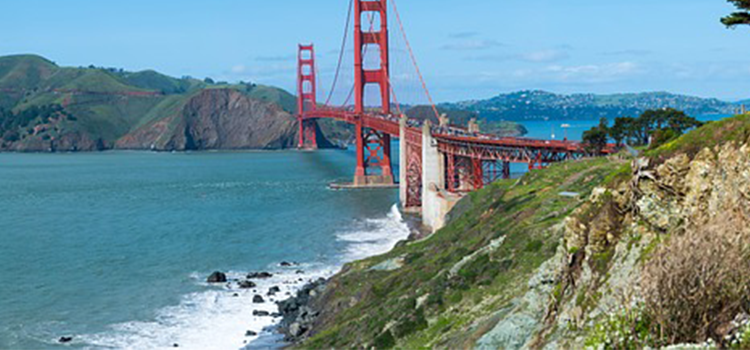Supreme Court to Consider Copyright Suit of the Decade

The U.S. Supreme Court recently agreed to consider Google LLC v. Oracle America Inc., which has been characterized as the “copyright lawsuit of the decade.” The issues before the Court are whether copyright protection extends to a software interface; and how the doctrine of fair use applies to computer code.
Facts of the Case
The case centers on software interfaces, which are lines of computer code that allow developers to operate prewritten libraries of code used to perform particular tasks. Sun Microsystems originally developed the Java platform, which includes the free Java programming language. The software interfaces at issue are part of the Java language’s application programming interface (API).
Google used some of the Java API declarations to build Android, its ground-breaking mobile platform. Google then wrote its own implementing code. After Oracle acquired Sun, it sued Google for copyright infringement. Oracle alleged that Google had impermissibly copied the declarations and also the “structure, sequence, and organization” (SSO) of the Java API.
After the first jury trial in 2012, the district court granted Google’s motion for judgment as a matter of law on the copyright claims. It held that the APIs are not entitled to copyright protection because they represent a command structure, or method of operation, that could not be written any other way. The Federal Circuit reversed, finding that the declaring code and SSO of the Java API packages are entitled to copyright protection. It remanded the case for a second trial on whether Google’s use of the APIs was a fair use.
In 2016, a jury found that the doctrine of fair use applied. However, the Federal Circuit reversed, concluding that Google’s use of the Java API packages was not fair as a matter of law. It held that Google’s use of the API packages is not transformative as a matter of law because: (1) it does not fit within the uses listed in the preamble to § 107; (2) the purpose of the API packages in Android is the same as the purpose of the packages in the Java platform; (3) Google made no alteration to the expressive content or message of the copyrighted material; and (4) smartphones were not a new context. “There is nothing fair about taking a copyrighted work verbatim and using it for the same purpose and function as the original in a competing platform,”the court wrote.
Issues Before the Supreme Court
The Supreme Court granted certiorari on November 15, 2019. The justices have agreed to consider two questions: “(1) Whether copyright protection extends to a software interface; and (2) whether, as the jury found, the petitioner’s use of a software interface in the context of creating a new computer program constitutes fair use.”
In its petition for certiorari, Google called on the Court to resolve the existing circuit split on the appropriate standard for determining the circumstances under which a software interface is copyrightable. “Because new software builds on components of existing software, innovation in this field largely depends on how copyright law treats software interfaces, the essential building blocks of software development,” Google wrote. The tech company also argued that the Federal Circuit has “upended the computer industry’s longstanding expectation that developers are free to use software interfaces to build new computer programs.”
Meanwhile, Oracle contends that the Federal Circuit got it right. “Naturally, it inflicted incalculable market harm on Oracle,” Oracle argued in its brief to the Supreme Court. “This is the epitome of copyright infringement, whether the work is a news report, a manual, or computer software.”
Oral arguments have not yet been scheduled. A decision is expected by June 2020.
Previous Articles
SCOTUS Rules State Can’t Immunize Parties from Federal Civil Liability
by DONALD SCARINCI on January 29, 2026
In John Doe v. Dynamic Physical Therapy, LLC, 607 U.S. ____ (2025) the U.S. Supreme Court held that...
Supreme Court to Address Racial Discrimination in Jury Selection
by DONALD SCARINCI onWhile the U.S. Supreme Court has concluded oral arguments for the year, it continues to add cases t...
Supreme Court Halts Deployment of National Guard to Chicago
by DONALD SCARINCI on
In Trump v. Illinois, 607 U.S. ____ (2025), the U.S. Supreme Court refused to stay a district court...
The Amendments
-
Amendment1
- Establishment ClauseFree Exercise Clause
- Freedom of Speech
- Freedoms of Press
- Freedom of Assembly, and Petitition
-
Amendment2
- The Right to Bear Arms
-
Amendment4
- Unreasonable Searches and Seizures
-
Amendment5
- Due Process
- Eminent Domain
- Rights of Criminal Defendants
Preamble to the Bill of Rights
Congress of the United States begun and held at the City of New-York, on Wednesday the fourth of March, one thousand seven hundred and eighty nine.
THE Conventions of a number of the States, having at the time of their adopting the Constitution, expressed a desire, in order to prevent misconstruction or abuse of its powers, that further declaratory and restrictive clauses should be added: And as extending the ground of public confidence in the Government, will best ensure the beneficent ends of its institution.





